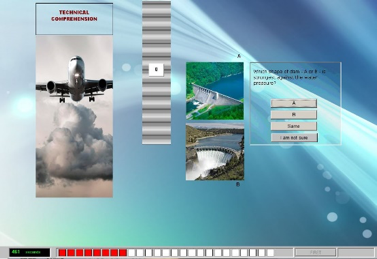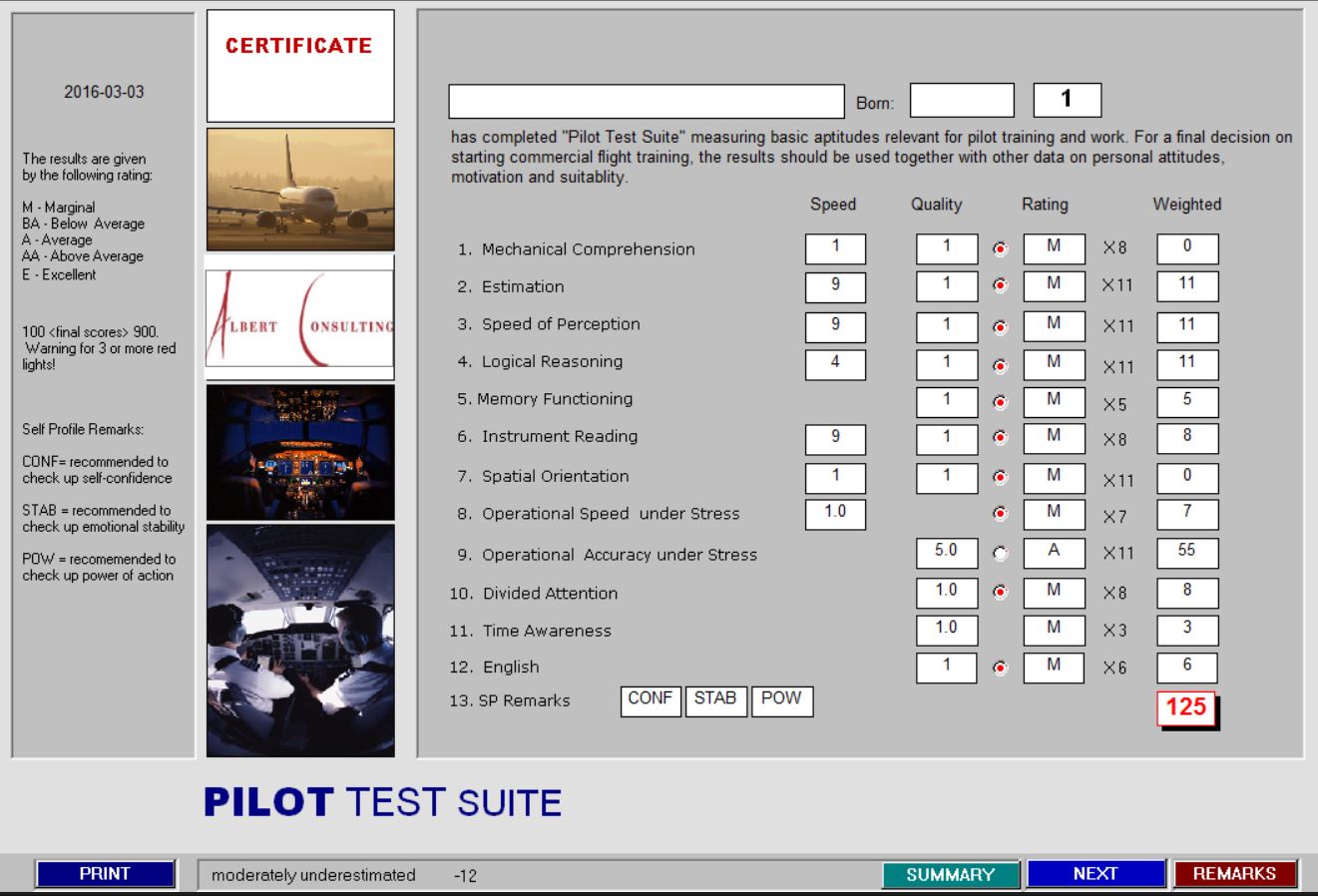For the airline with ambitions to keep the pilot selection in-house, we offer a cost-effective supportive tool for the selection staff: a Windows based test suite measuring 10 vital aptitudes. The results are accessible for analysis either by the airlines` own experts or sent for an evaluation to Albert Consulting Ltd. The test takes between 3-3.5 hours and the results are immediately available after the test is completed. With a button click you can push the results into an Excel sheet. The test may be customized to your airline’s needs and can also weight the dimensions of the results to your specific airline profile. The norms are built on approximately 600 ab-initio candidates, but we can easily build norms for experienced pilots too. The test may be presented to a single person or a larger group.. However our experience is that to create added value by observations, no more than 10 candidates should be tested at the same time.
THE PTS (PILOT TEST SUITE) covers 12 dimensions:
The Pilot Test Suite is developed to measure a set of basic capacities and skills relevant to successful pilot training and career progress. A complete assessment of pilot potentials, where personal suitability, potential for cockpit co-operation, leadership and other attitudes are assessed, requires more than skills screening. The intention with this test is to check the basic capacities, to give the airline advice on whether pilot training seems to be a possible choice or not.
Mechanical Comprehension
The score is based on basic technical and mechanical items of medium complexity. This part of the test predicts intuitive understanding of mechanical matters, more than theoretical knowledge.

Estimation
The score is based on ability to make estimations of a set of numerical and other tasks, with priority on giving sound estimations with a fairly high speed.
Speed of Perception
The score is based on ability to read instrument settings, to perceive and apply that information quickly and accurately. This test is also often highly correlated to the ability to reason, judge and decide with acceptable speed and confidence.
Logical Reasoning
The scores are based on ability to find logical systems and patterns in series of numbers. The scores are well correlated also to general problem solving ability. Lack of practice in numerical operations might influence negatively on test results.
Memory Functioning
The score is based on ability to memorize data despite interrupting tasks and problem solving.
Instrument Reading
The score is based on ability to read flight instruments and identify the correct verbal description of the flight status indicated by the instruments. It is a more complex instrument reading compared to the test used for assessing Speed of Perception.
Spatial Orientation
The score is based on ability to identify the position of different aircraft with the help of some basic flight instruments. The test measures the ability to orient oneself in the air space in three dimensions with good speed and accuracy.

Operational Speed /Accuracy under Stress
The scores indicate both quality and speed in mental operations under stress. The score is based on ability to keep an adequate function level intact as workload, pressure and simultaneous demands increase.
Multi-tasking
An ability to perform multiple tasks at the same time. Variation of this term is split vision, divided attention or simultaneous capacity.
Time Awareness
The scores indicate a relevant and realistic perception of time.
English
The score is based on ability to manage English vocabulary and grammar. The test is of medium complexity and designed for non-native English speakers.
Self-profile Remarks
While all personality inventories should be interpreted and handled by trained psychologists, this test doesn't result in a complete profile. However, it might indicate some patterns which are non-compatible with piloting and are recommended for further examination.
